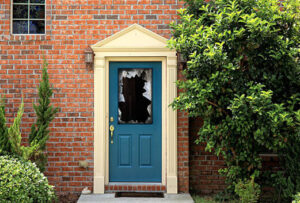 The time immediately succeeding a loved one’s passing is often filled with long nights, stress, and overwhelming confusion. Between making funeral arrangements and settling an estate, it’s easy for crucial information that can put you or your family at risk to slip through the cracks. Unfortunately, the time you spend grieving is also the time home burglars spend thieving.
The time immediately succeeding a loved one’s passing is often filled with long nights, stress, and overwhelming confusion. Between making funeral arrangements and settling an estate, it’s easy for crucial information that can put you or your family at risk to slip through the cracks. Unfortunately, the time you spend grieving is also the time home burglars spend thieving.
Just last November, a woman in the Bronx was sentenced to 11 years in prison for burglarizing six homes in New York while families were attending funerals for relatives. Obituary burglars are no new phenomenon, but they aren’t going away any time soon. In order to keep yourself, your family, and the belongings of your deceased loved one safe, it’s important to take these specific precautions before publicly releasing information related to their funeral arrangements.
Tip #1: Don’t publish news of your relative’s passing online, on social media, or in any local newspaper outlet. While this may seem like a no-brainer, in a day and age when everything from engagements to what we ate for breakfast appears online, it’s easy to forget that criminals also stalk your neighborhood Facebook walls and newsletters.
Tip #2: If the home of whoever passed is now unoccupied, make sure every door and window is locked, and that the home is armed with a security system that is set up to notify you, a neighbor, or a nearby relative. Better yet, create the illusion that someone is in the house by leaving a kitchen or living room light on, or a main room television on.
Tip #3: On the day of the funeral, ask a trusted neighbor or friend to keep an eye on the home while you’re away. The more eyes on the house, the more witnesses there will be in the event of a robbery, and the more likely police will be able to respond. In fact, many municipalities encourage you to notify policy so they can keep an eye on your home.
Tip #4: If the deceased person’s home contains any valuables, it is best to retrieve these items as soon as possible for safe keeping.